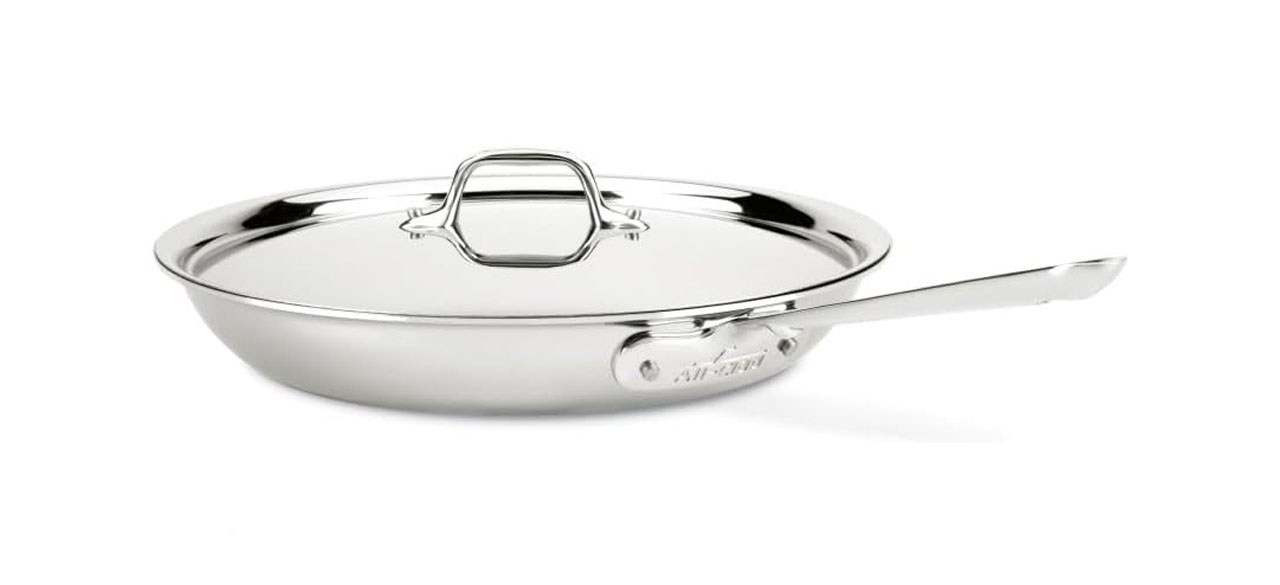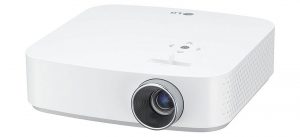
Cook your favorite dishes with these top-rated skillets
Which skillet is best?
If you spend any time in the kitchen, chances are you rely on a skillet for cooking many types of food. Occasional cooks and skilled chefs alike appreciate the versatility of this useful tool when it comes to stovetop cooking.
When you find the right size, material and price tag, your new skillet will likely become your go-to cookware essential, whether you’re frying up a quick lunch for one or preparing a dish for the family. Our top pick, the All-Clad Fry Pan, can survive high oven temperatures and is dishwasher safe.
What to know before you buy a skillet
Frequency of use
Budget-priced pans are okay for occasional use, but durable, high-quality skillets will withstand frequent cooking.
Lid vs. no lid
Not all skillets have lids, but models that do are worth it for cooking dishes that need to be covered while on the stove.
Size
Skillets come in different sizes, and some of the most common are 8, 10 and 12 inches.
Location
It’s no surprise that skillets are made for cooking on a stovetop, but some are made of materials such as stainless steel or cast iron that you can use in the oven. However, keep in mind that some skillet handles are not oven-proof.
What to look for in a quality skillet
Materials
Aluminum: These pans are affordable and lightweight, but some have longevity concerns. Leaching of the metal is also an issue, especially if the skillet isn’t anodized.
Stainless steel: Stainless steel skillets are strong and made to last. Some can even be used in the oven, provided the handles aren’t coated in plastic. Although food sticking to the surface is a concern, some modern skillets have finishes designed to prevent this.
Copper: These skillets are pricey, but they look as good as they cook. However, they aren’t quite as durable as pans made of other materials.
Nonstick
Although nonstick surfaces are prone to scratches, they’re popular because they’re easy to cook with and clean. Many nonstick pans are also quite affordable.
How much you can expect to spend on a skillet
Regardless of the material you choose, you can find a quality skillet for $20-$50, with some higher-end models falling in the $80-$120 range. The exception is copper, which is typically priced at $50 and up.
Skillets FAQ
Is there a skillet that can easily go from stovetop to grill grate?
A. Not all skillets can handle the intense direct heat of a grill, but one made of cast iron can. In fact, these pots and pans have been used to cook over open flames for centuries because they can withstand temperatures well over 500 degrees Fahrenheit.
What are some tips for maintaining a skillet with a nonstick surface?
A. To extend the longevity of your nonstick skillet, you can use only utensils made of nylon, silicone or wood to stir and serve food. In addition, washing your skillet by hand with a soft sponge and mild dish detergent will help protect the finish.
What’s the best skillet to buy?
Top skillet
What you need to know: This well-made, versatile skillet has a lid and a justifiably higher price tag, considering its features.
What you’ll love: It is crafted of durable stainless steel and aluminum with a surface that resists sticking. It can handle high oven temperatures and be cleaned in the dishwasher. It includes a limited lifetime warranty.
What you should consider: Frequent overheating can discolor the pan.
Top skillet for the money
What you need to know: This is the best pick if you need a decent pan at a price that won’t break the bank.
What you’ll love: This is a practical skillet at the lower end of the price scale. Most foods easily slide off the nonstick surface.
What you should consider: The curved surface isn’t ideal for all foods, and the nonstick coating can scratch.
Worth checking out
What you need to know: With proper cooking steps and care, this quality cast-iron skillet won’t disappoint.
What you’ll love: The cast iron is pre-seasoned and manufactured by a company known for quality cookware. It is built to last, even when cooking at high temperatures.
What you should consider: Using it takes a little trial and error if you aren’t used to cooking with cast iron. Food can burn or stick fairly easily.
Prices listed reflect time and date of publication and are subject to change.
Check out our Daily Deals for the best products at the best prices and sign up here to receive the BestReviews weekly newsletter full of shopping inspo and sales.
BestReviews spends thousands of hours researching, analyzing and testing products to recommend the best picks for most consumers. BestReviews and its newspaper partners may earn a commission if you purchase a product through one of our links.


